People with tidy homes never make these open shelving mistakes
Tidy people know how to avoid the most common open shelving mistakes in every room of the house - here's how
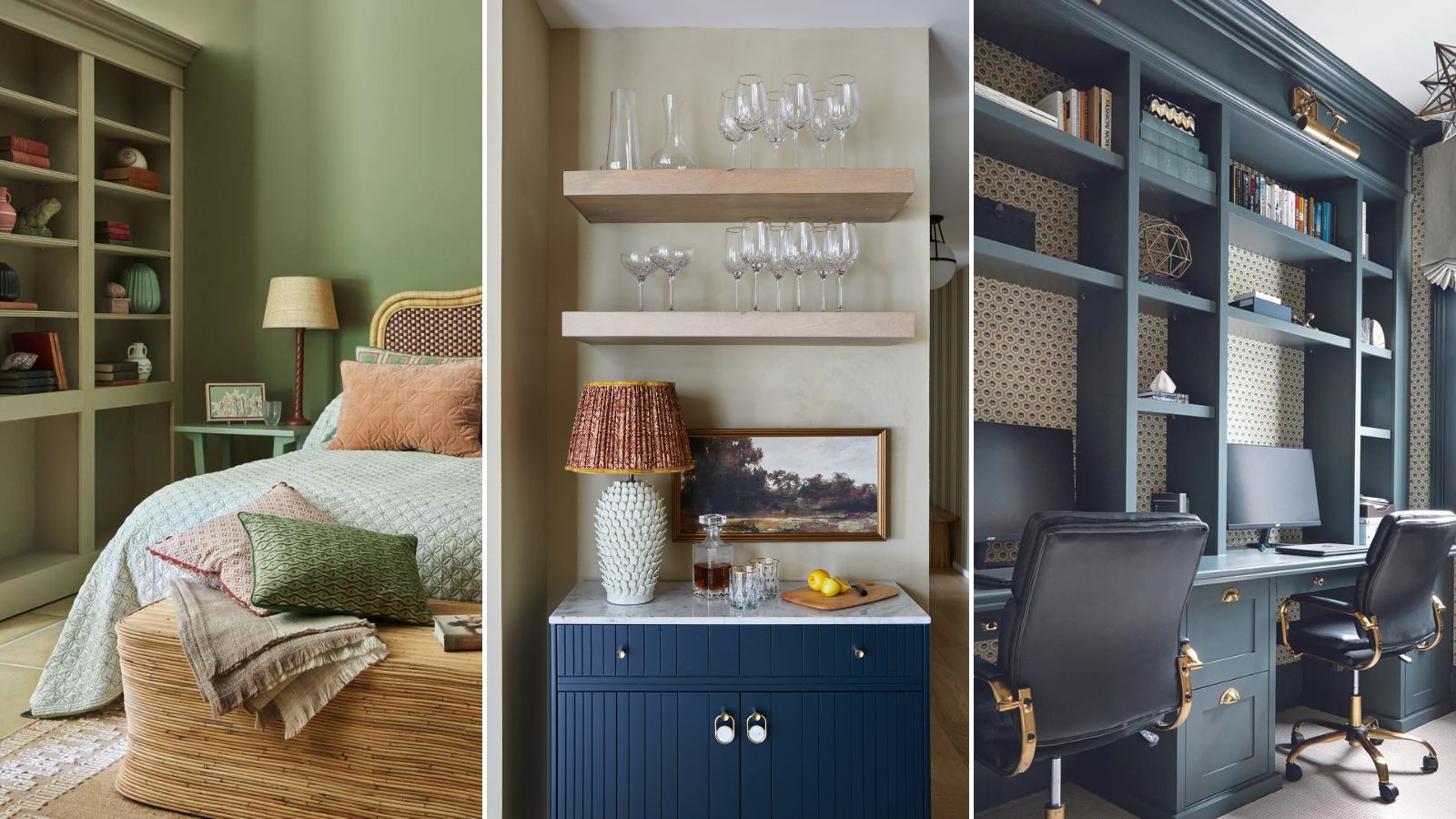

Open shelving is a favored storage solution for many homeowners, as it offers the perfect 'open canvas' to display one's tastes and treasured keepsakes. But this stylish design choice is not without its challenges.
While many of us are aware of the downsides of open shelving in a kitchen, without careful consideration, open shelves can quickly attract clutter and descend into disarray throughout our homes.
Below, we share the most common open shelving mistakes in every room of the house. Plus, we ask interior designers to share what techniques people with tidy homes use to master the art of streamlined storage.
Open shelving mistakes to avoid
If you love decorating shelves but often find your open shelving gets cluttered and disorganized, you may be falling victim to some common pitfalls. Thankfully, these are easy to remedy with a few designer-approved tips:
The Kitchen
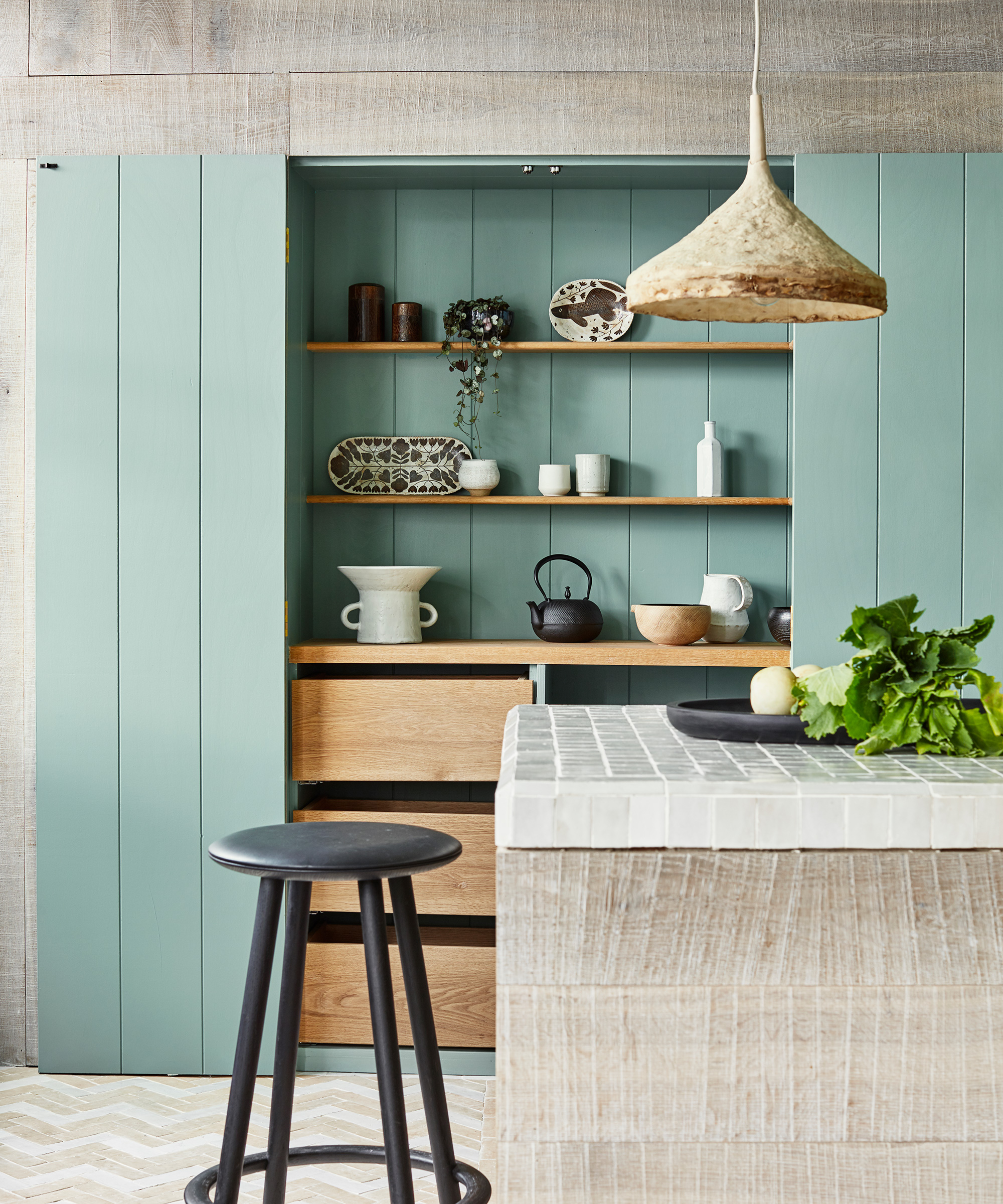
Open shelves rank among the most popular kitchen shelving ideas, and rightfully so. In this room, open shelving can serve both a practical and decorative purpose, allowing you to showcase your favorite dishes and glassware while providing easy access to items you use daily. However, achieving this streamlined means steering clear of some common pitfalls.
Common mistakes
- Displaying perishables: Unsightly food packaging is usually listed among the items never to be stored on kitchen shelves. 'I would steer away from storing food packages such as crackers, pasta, flour, or rice on open shelves,' says Alice Chiu, interior designer and Founder of Miss Alice Designs. 'Transfering them from their packaging into glass canisters not only looks more appealing but also adds dimension to the space.'
- Cluttering shelves with too much crockery: While it can be tempting to use open shelves to display all your dishware, this can quickly result in a cluttered and chaotic look. Overfilling shelves with too many items can make your space feel cramped and cluttered. Aim for a balance between decoration and functionality.
- Placing open shelves near your oven: It's never a good idea to position this type of shelf above or in close proximity to an oven. If you're a frequent home cook, there's a risk that food splatters and residual grease will find its way onto your items. Not only is this a nightmare to clean, but it can also be unhygienic.
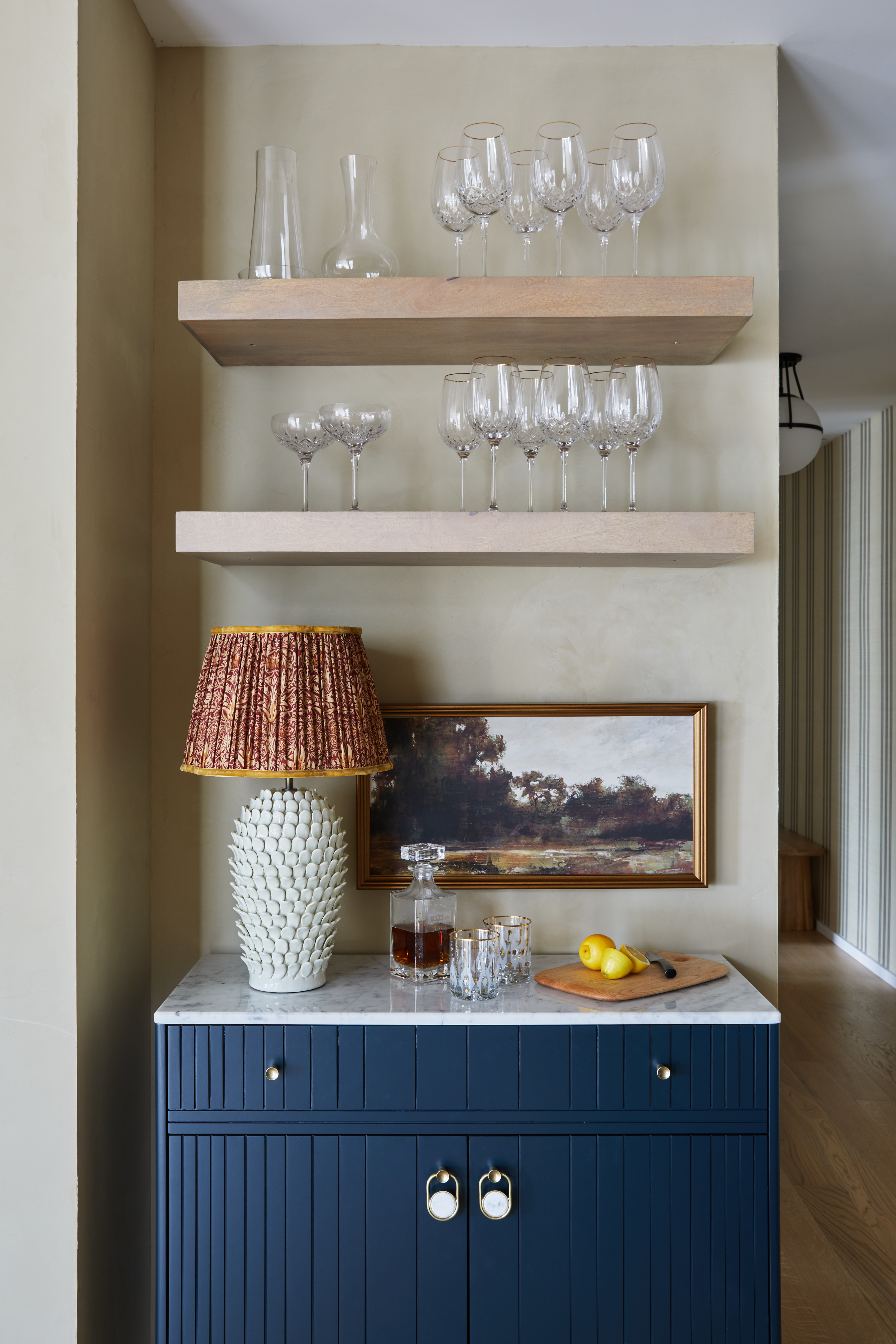
Solutions
- Curate, curate, curate: People with tidy homes usually organize kitchen shelves like a designer, being mindful of both the quantity as well as the quality of items on display. 'Keep in mind, open shelving needs to be curated, not haphazardly thrown together,' explains interior designer Laura Chappetto from Element Design Network. 'Your items should be planned out and organized. 'Glassware and dishes should be divided up into smaller groupings and separated by stacks of books, a trailing plant, an interesting larger ceramic piece, decorative boxes, and the occasional piece of art.'
- Keep things minimal: It's equally important to consider the function of your kitchen shelves. Leave enough space for items to breathe, and make sure you dust and wipe down open shelves at least once a week to remove dust particles and residual grease.
- Consider safety: 'Fragile or breakable items are best stored in closed cabinets or drawers to prevent damage,' reminds Rebecca Fernandez from Shelfology. Similarly, do not store heavy or bulky items on high kitchen shelves to avoid falling objects from causing harm.
- Commit to dusting glassware: 'Glass items on open shelves can be a fantastic way to reflect light, instantly brightening and visually expanding a room,' says Melanie King, interior designer at Isys Interiors. 'The minor admin of needing to dust is outweighed by the aesthetic payoff and benefits of the openness and transparency glass on open shelves provides - well worth the occasional dusting!'
Open shelving in bedrooms
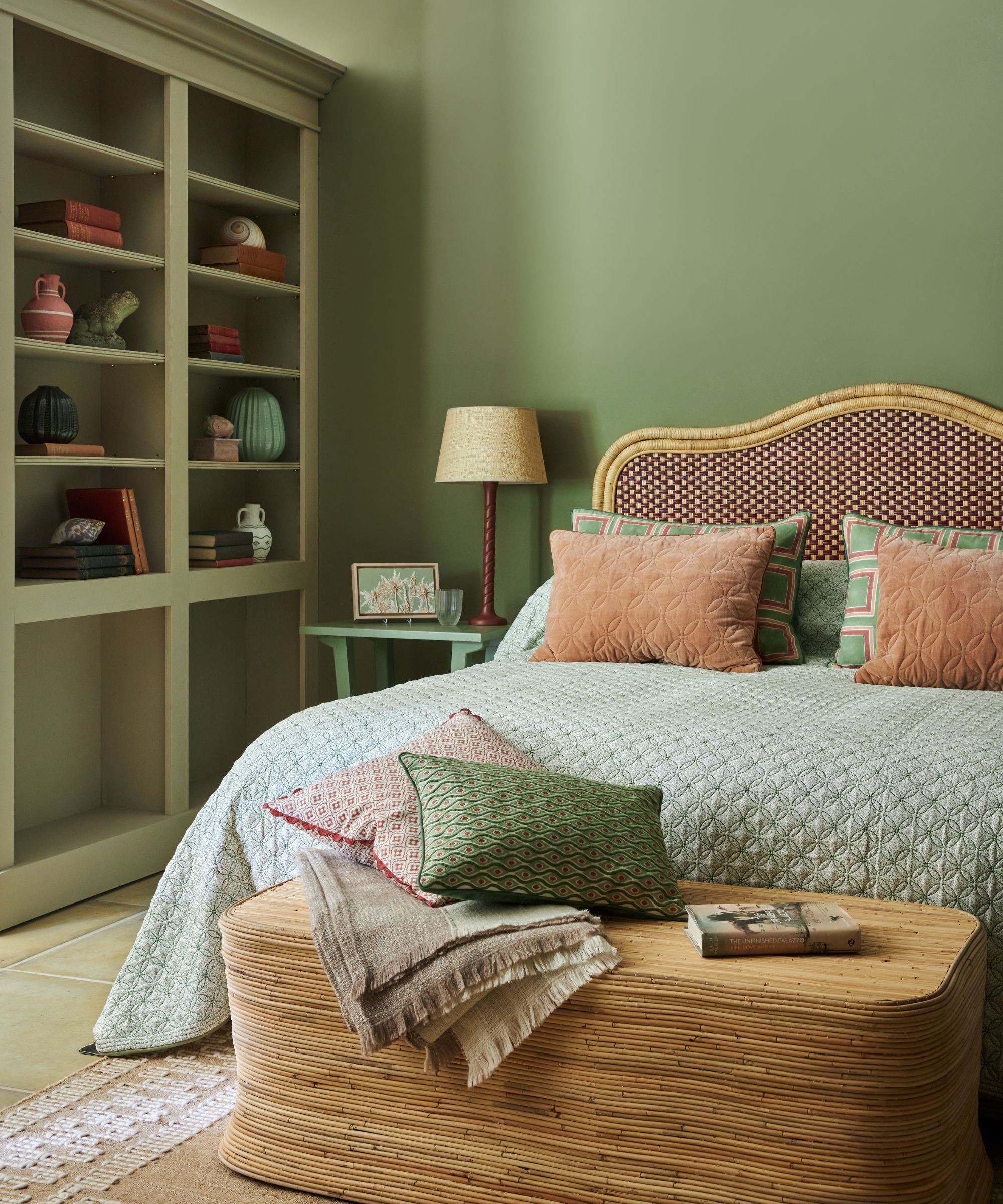
Bedroom storage ideas can be tricky to get right, as you need to strike a careful balance between practicality, style, and comfort. But many of the same rules apply here as they do in your kitchen.
Common mistakes
- Too many personal items: More often than not, our bedroom shelves become magnets for everyday items like clothing, electrical gadgets, or half-eaten snacks (that one mostly applies to messy teenagers). Shelves crowded with day-to-day items like these can make your bedroom feel disorganized.
- Neglecting ambiance: The primary function of bedroom shelving should be to enhance your room's sense of peace and relaxation. Ideally, your shelves should create a sense of calm, not add to the 'visual noise'.
Solutions
- Keep it personal but pared down: Keep the items you display on open shelves personal but streamlined to evoke a sense of comfort without the stress of visual clutter. For instance, you may want to showcase your favorite photos, a small curated selection of artwork, or a neat pile of your favorite bedtime reads.
- Stow practical pieces away: Much like clearing away those items not to be stored on your nightstand, it's important to keep your bedroom shelves clutter-free for a better night's sleep. Consider taking everyday essentials off display and popping them into well-organized drawers or stashing bigger, lesser-used items in under-bed storage.
- Set the tone: To help create a restful atmosphere in your bedroom, try to select items that follow a calming color scheme or theme. Soothing candles and decorative diffusers are good choices, especially when they have the best scents for sleep.
Open shelving in living rooms
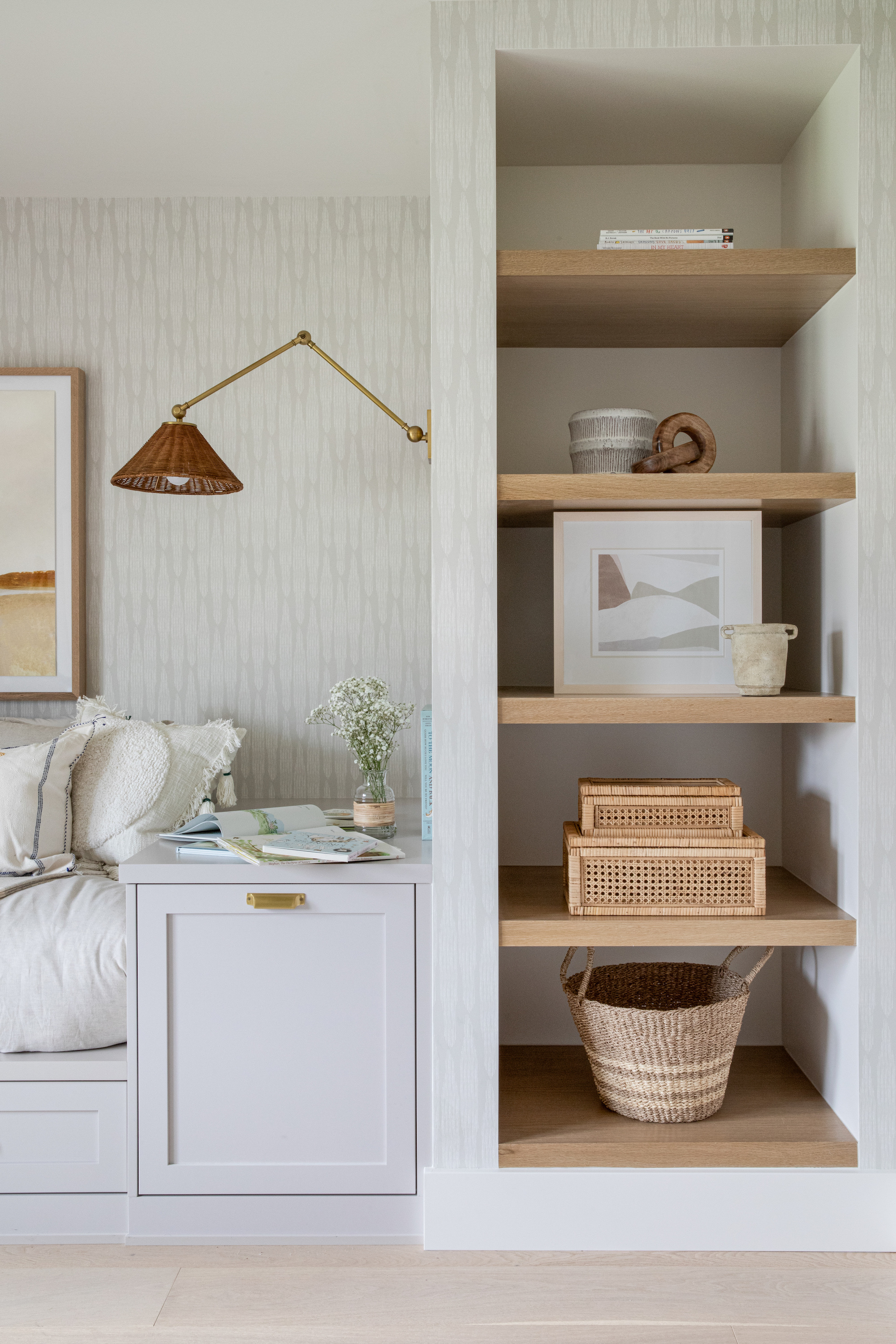
When it comes to living room shelving ideas, few will deny that open shelving is the perfect way to showcase your favorite possessions and artwork. However, without careful styling, these shelves might quickly overflow with mismatched books and an odd assortment of items, all gathering dust.
Learn more about the things people with tidy homes never do.
Common mistakes
- Overcrowding shelves: Many people feel the need to cram every spare inch of space with books, photos, and memorabilia. Not only can this result in stress-inducing visual clutter, but it can also be incredibly difficult to dust and clean around.
- No cohesive theme: Often living room shelves contain a hodgepodge of items that have no unifying theme or color. Worse still, items on open shelves sometimes contradict or clash with your living room color scheme.
- Ignoring scale: Small items placed on a long shelf spanning the width of a living room can look out of place and get lost in the bigger picture. Likewise, too-large items can look cramped and out of place.
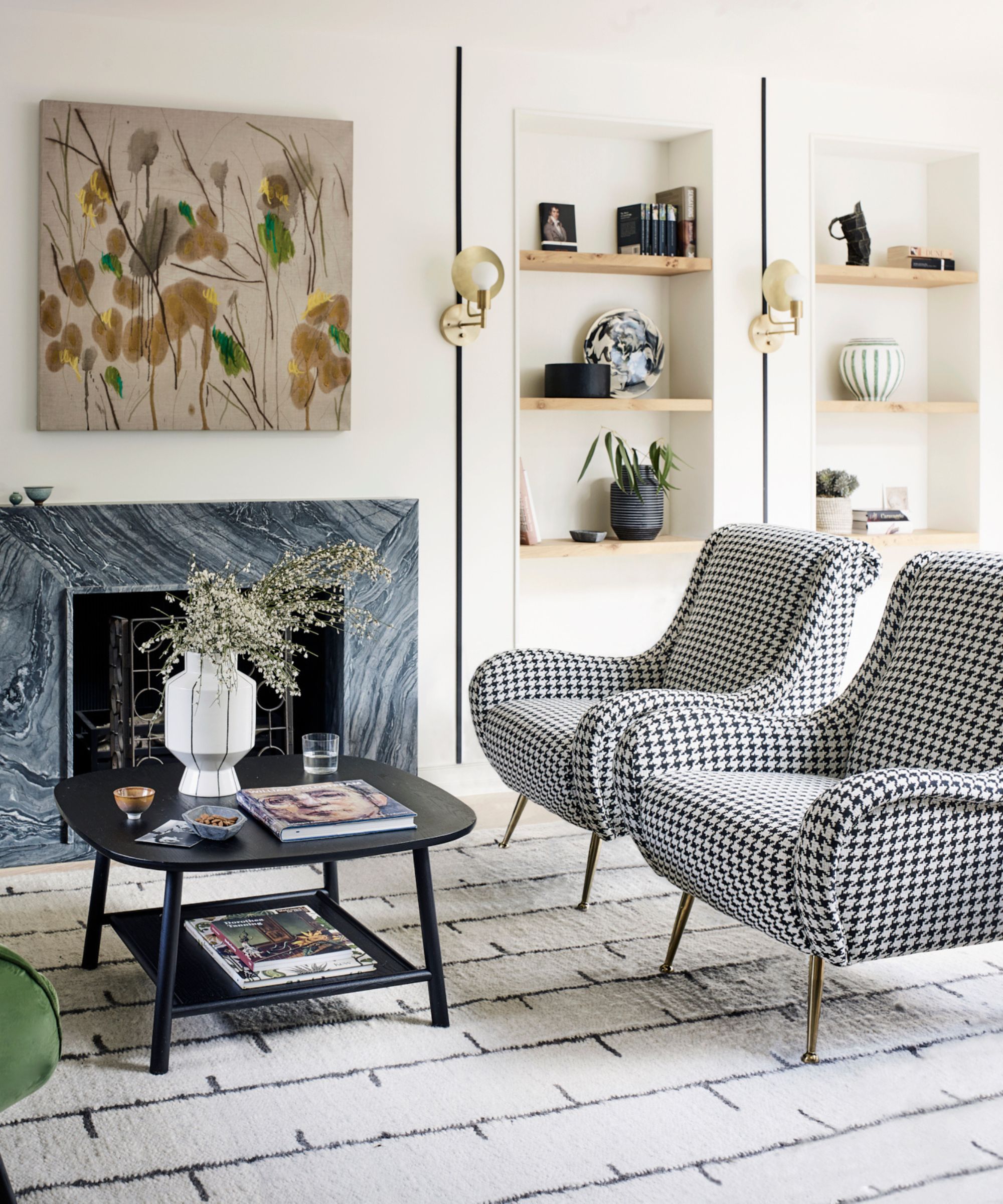
Solutions
- Be selective: 'Carefully selected artwork, books, and vases can add pops of color and pattern,' suggests Alice Chiu, interior designer. People with tidy homes choose a few focal items and rotate these seasonally.
- Unified aesthetic: Consider your color scheme and be mindful of your living room ideas when selecting which pieces you want to keep out on display. 'To maintain visual appeal, prevent excessive clutter by leaving empty space between items,' says Rebecca Fernandez from Shelfology. This will also help when it comes to dusting and cleaning your living room.
- Mind the size: Balance your pieces and ensure they are proportionate to the shelf space. You may find it helpful to group smaller items together in trays or boxes to create more visual unity. 'The key is arranging each piece and not putting too many mismatched items together on the open shelves,' adds Chiu.
Open shelving in bathrooms
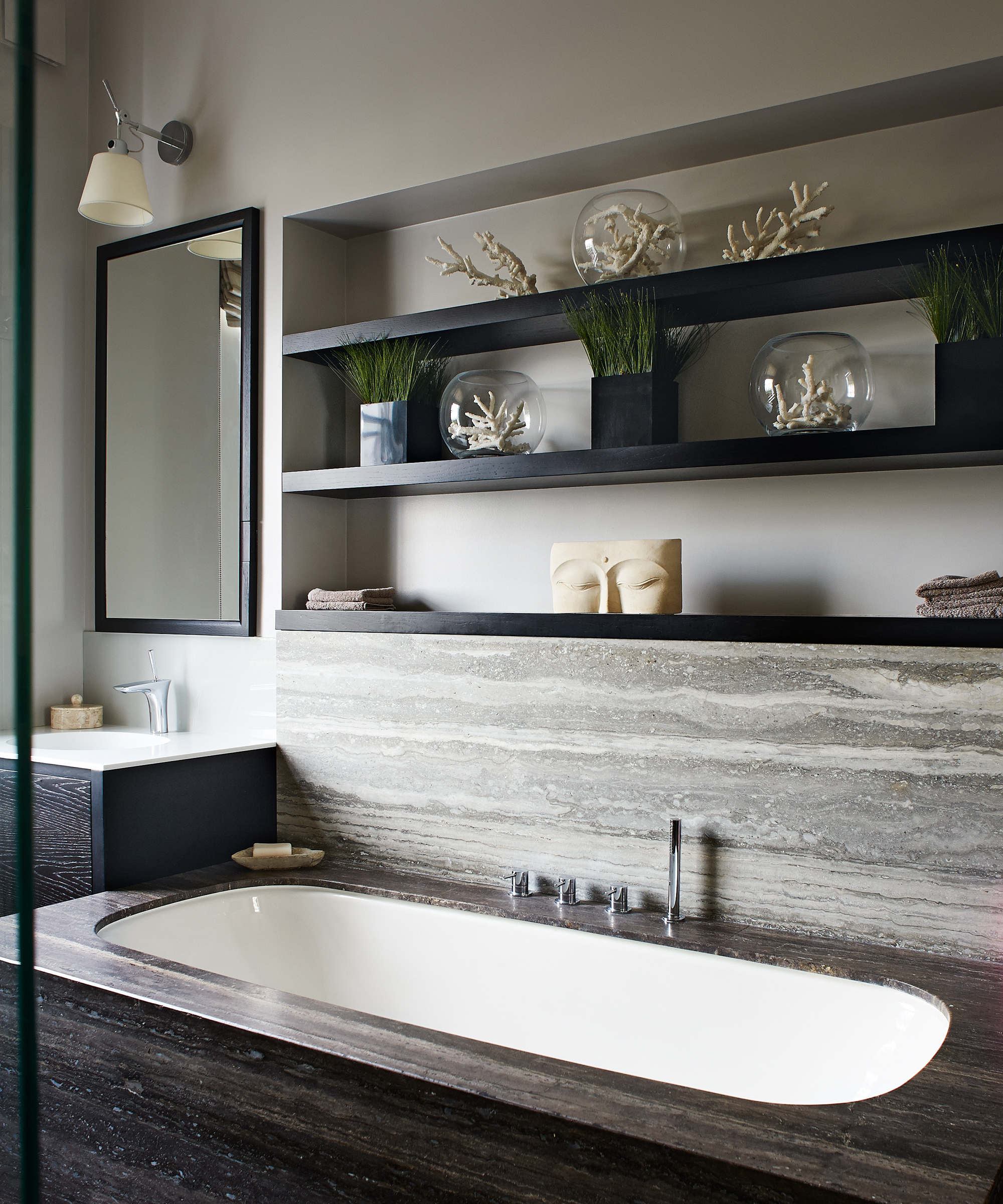
Your bathroom shelf is the perfect place to start if you want to create a spa-like retreat. Follow in the footsteps of people with tidy homes and seize the opportunity to get creative with the items you display here.
Common mistakes
- Too many personal objects: Resist the urge to crowd shelves with personal hygiene products. These can make your bathroom feel more like a storage closet than a relaxing retreat.
- A lack of luxury: Open shelves featuring excess toilet rolls, stacks of towels, and additional toiletries can make a space feel purely functional. This is especially true when your shelves lack luxurious touches, like artisanal soaps or candles.
Solutions
- Elegant essentials only: To add to the spa-like quality of your bathroom, store personal items out of sight and display only those that enhance the bathroom's aesthetic. Decant cotton balls into glass jars, invest in an elegant dispenser for liquid soaps and select a limited number of beauty products to display. This approach keeps your shelves a perfect blend of beauty and practicality.
- Consider towel storage: If open shelving is your only option for towel storage, focus on presentation. Rolling towels or arranging them neatly in a decorative basket can add a touch of elegance while keeping them within easy reach.
Open shelving in home offices
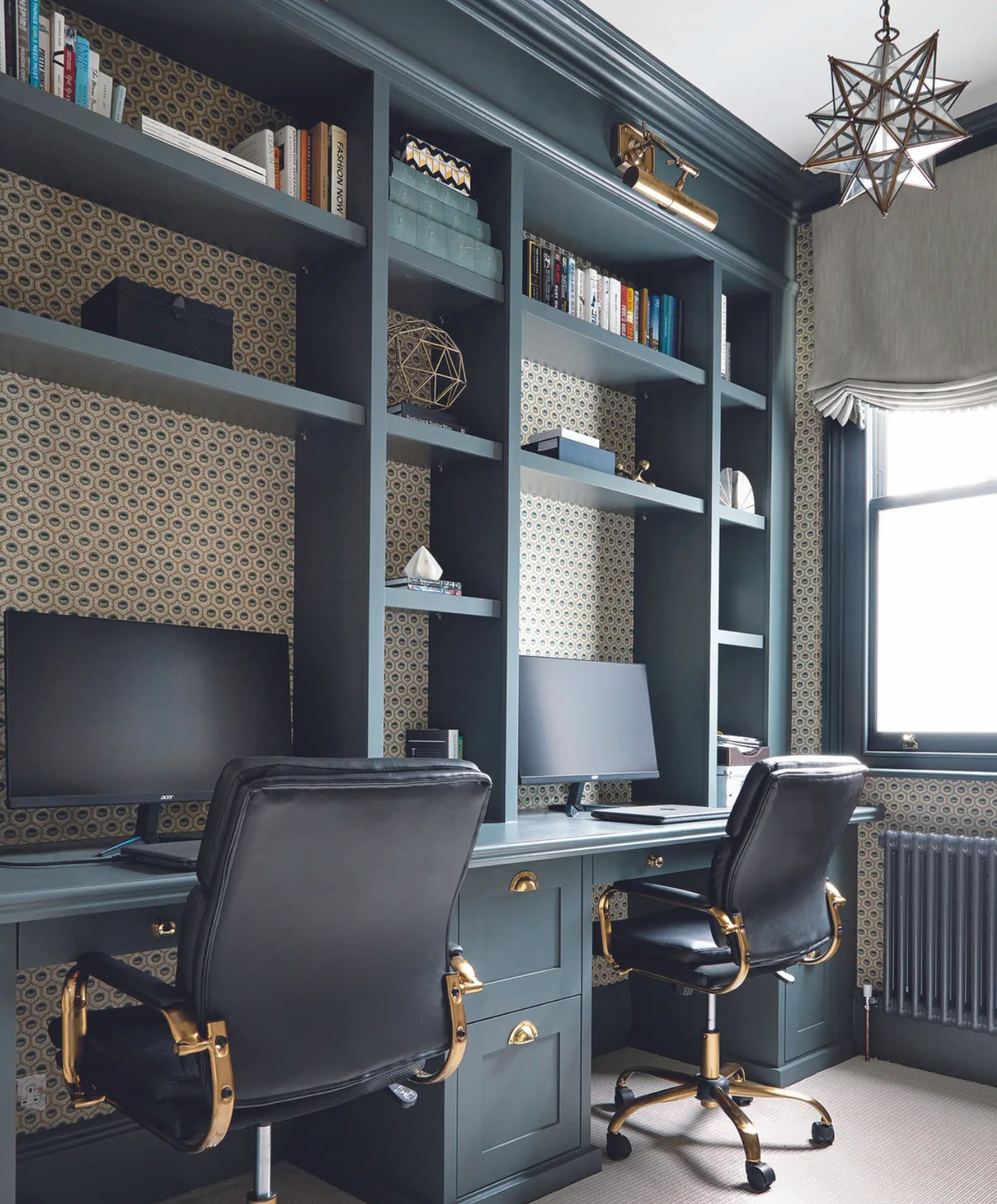
Home office storage ideas must walk a fine line between inspiring productivity and maintaining order. People with tidy homes know that open shelving plays a significant role in achieving this balance.
Common mistakes
- Leaving sensitive documents out: Privacy and security should always be a priority, and leaving sensitive documents on display is a no-no. This poses a data security risk and results in a cluttered appearance, far from ideal when searching for important papers.
- No Containers: Tidy people rarely leave loose items like stationary and books out on display without neatly corralling them into containers or organized piles.
Solutions
- Organize with purpose: Use your shelves not just for books but also for organizing documents and supplies to enhance your productivity. This might involve sorting items by project, category, or urgency. Always label items if you can – there's nothing worse than losing track of important documents.
- Contain clutter: Containers are one of the things the most organized people have in their home office. Boxes and decorative baskets help keep your shelves organized and your mind clear. When in doubt, choose containers that complement the room's decor and minimize visual clutter.
- Go bespoke: If budget allows, you may want to consider custom solutions for your home office. Whether it's built-in organizers for your tech, adjustable shelves for displaying items of varying sizes or a bespoke bookcase - these custom units can transform your open shelving for the better.
When styled correctly, open shelving is a type of storage that makes a home look expensive. People with tidy homes know this all too well, which is why they've mastered the art of streamlining these spaces. People with tidy homes also tend to
Sign up to the Homes & Gardens newsletter
Design expertise in your inbox – from inspiring decorating ideas and beautiful celebrity homes to practical gardening advice and shopping round-ups.

Gabriella is a freelance contributor for Homes & Gardens. She is a DIY enthusiast and a lover of all things interior design, often found antiquing or browsing the aisles of her local hardware store. She has a particular passion for historic buildings and is in the process of renovating a Victorian coachhouse in the countryside.
For much of the past decade, Gabriella has worked as a freelance writer, crafting copy for national publications and renowned homeware brands. Most recently, she worked for Homebuilding & Renovating Magazine and is the former Head of Solved at Homes & Gardens, focusing on case studies for the magazine and website, as well as writing features about issues surrounding historic and listed building projects.
-
 Charred little gem with saffron dressing
Charred little gem with saffron dressingThis recipe with charred little gem is both easy to make and sure to impress guests. It's the perfect side for fresh spring menus
By Alice Hart
-
 Grilled asparagus with herb and pickled red onion
Grilled asparagus with herb and pickled red onionThis grilled asparagus couldn't be easier, and it's a wonderful way to get the best flavor from our favorite spring veg. It's perfect alongside fish or lamb
By Alice Hart